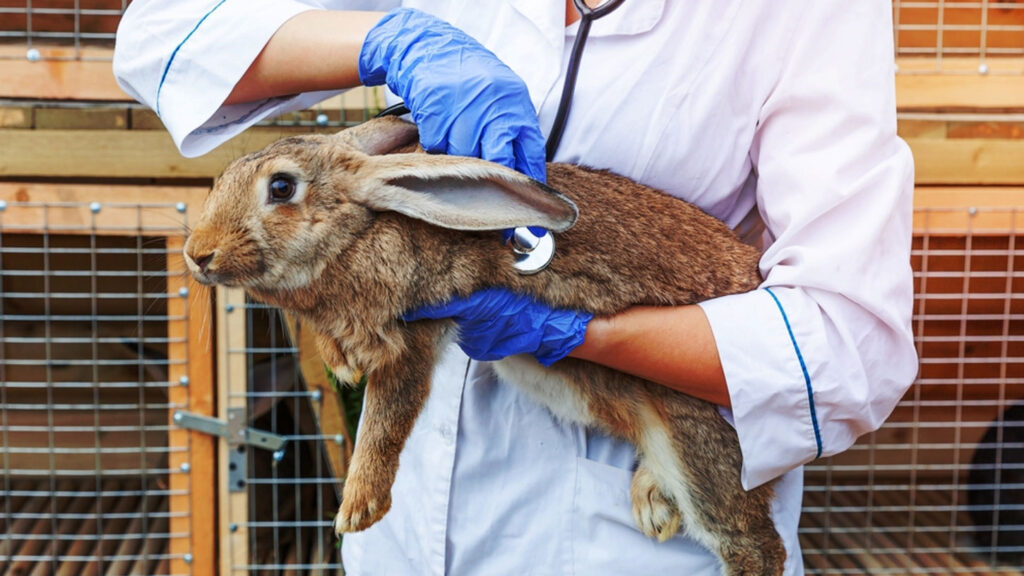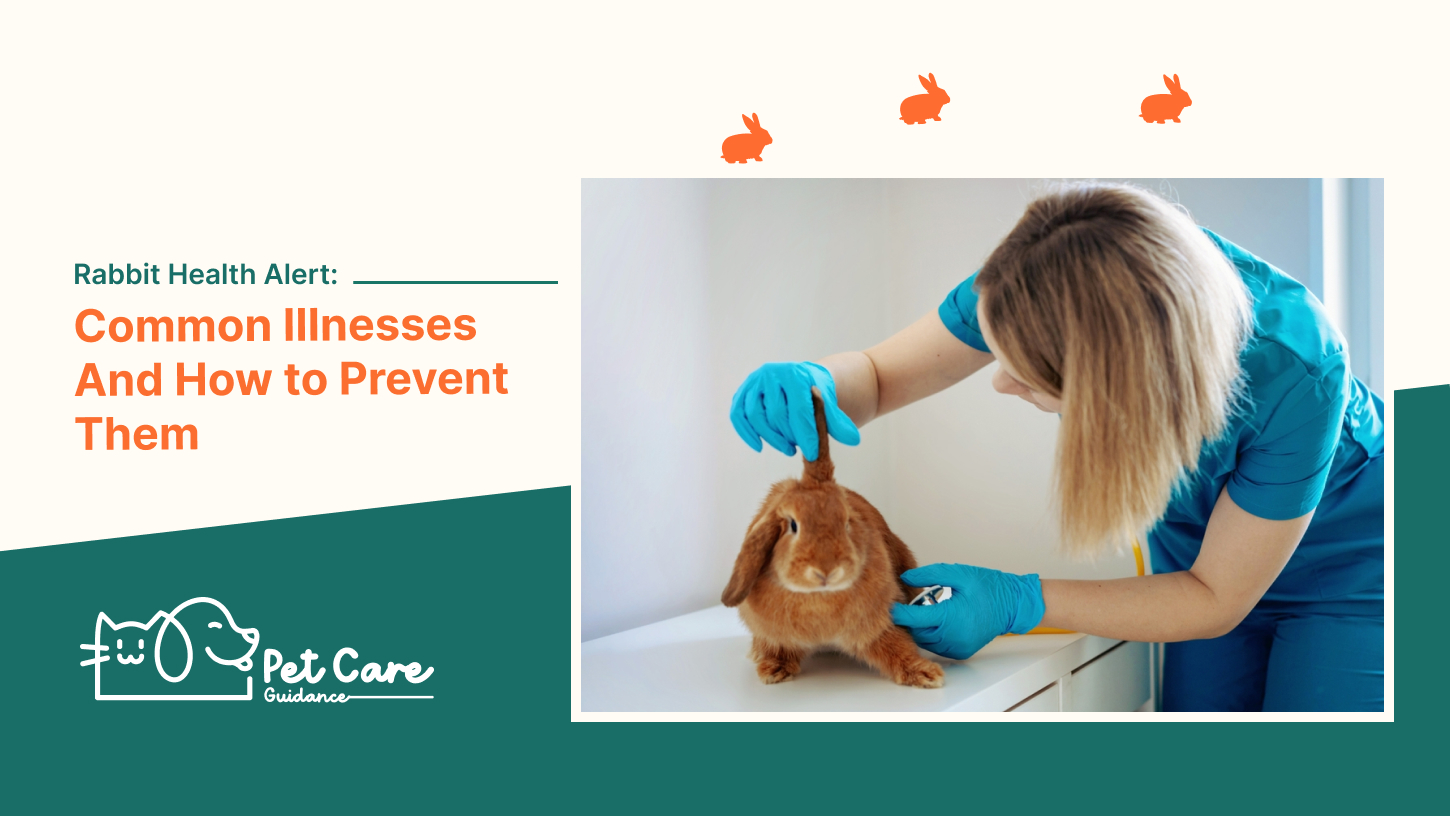Protect your rabbit’s health by preventing common illnesses such as upper respiratory tract infections, parasites, dental disease, gastrointestinal stasis, uterine problems, and foot sores through vaccinations and a proper diet of hay and grass. Regular health checks are essential to catch any potential issues early on.
1. Common Illnesses In Rabbits
| 1. Upper respiratory tract infections (snuffles) |
| 2. Internal and external parasites |
| 3. Dental disease |
| 4. Gastrointestinal (GI) stasis |
| 5. Uterine problems (infections or cancer) |
| 6. Pododermatitis (foot sores or sore hocks) |
Rabbits are susceptible to various common illnesses that can affect their health. Some of these illnesses include upper respiratory tract infections, which can cause symptoms such as sneezing, nasal discharge, and difficulty breathing. Internal and external parasites, such as mites and fleas, can also infest rabbits and cause itching and discomfort.
Dental disease is another common issue in rabbits, with overgrown teeth leading to pain and difficulty eating. Gastrointestinal stasis, or a slowdown in the digestive system, can occur due to various factors and can result in bloating and decreased appetite. Uterine problems, such as infections or cancer, can affect female rabbits and may require veterinary intervention.
Pododermatitis, commonly known as foot sores or sore hocks, can develop when rabbits are housed on hard or rough surfaces, leading to pain and inflammation. It’s important for rabbit owners to be aware of these common illnesses and take preventative measures to ensure their rabbit’s health and well-being.
2. Preventing Rabbit Diseases
Protecting rabbits from pain, injury, and disease:
Regular health check-ups are crucial to maintain the well-being of rabbits. By conducting routine examinations, potential health issues can be detected early and appropriate treatment can be provided. Additionally, vaccination is essential in preventing diseases like Myxomatosis and Viral Haemorrhagic Disease (VHD).
These diseases are usually fatal and can be prevented by proper vaccination. It is important to consult a veterinary surgeon for detailed information on disease prevention. Moreover, providing appropriate nutrition is vital in preventing dental and gut diseases. The main component of a rabbit’s diet should be hay and/or grass. This helps maintain dental health and promotes proper digestion.
Observing eating and drinking habits, as well as the quantity and consistency of droppings, can help identify any potential health issues, and immediate veterinary attention should be sought if there are any changes in these behaviors.
Common Illnesses and How to Prevent Them:
| 1. Overgrown Rabbit Teeth | – Teeth problems are one of the most common reasons for vet visits. |
| 2. Myxomatosis | – A viral disease that can be prevented through vaccination. |
| 3. Flystrike | – Regular grooming and cleanliness can prevent this condition. |
| 4. RVHD (Rabbit Viral Haemorrhagic Disease) | – Vaccination is necessary to protect against this potentially fatal disease. |
| 5. Rabbit Head Tilt | – This condition may require veterinary intervention. |
| 6. Rabbit Ear Mites | – Regular ear checks and appropriate treatment can prevent infestations. |
| 7. Rabbit Skin Conditions | – Proper hygiene and prompt treatment can prevent and manage skin issues. |
| 8. Poisoning | – Awareness of potential toxins and proper housing can prevent accidental ingestion. |
Regular veterinary check-ups, appropriate vaccination, and a well-balanced diet consisting mainly of hay and grass are crucial in ensuring the health and well-being of rabbits. By following these preventive measures, rabbit owners can protect their furry companions from common illnesses and maintain their overall health.

3. Improving Rabbit Health
Providing the right food (mainly hay and/or grass)
The first step to improving rabbit health is by providing the right food, which should mainly consist of hay and/or grass. These types of food help prevent dental and gut diseases. It is important to check if your rabbits eat every day and pass plenty of dry droppings. Any changes in their eating or drinking habits, or a reduction in droppings, should be immediately reported to your vet, as it could be a sign of a serious illness.
Monitoring eating, drinking, and droppings habits
To ensure optimal health, monitor your rabbits’ eating, drinking, and droppings habits on a regular basis. This will help you identify any changes or abnormalities in their behavior. Regular observation is essential to catch any potential health issues early and take necessary action promptly.
Taking immediate action if there are changes in habits or reduction in droppings
If you notice any changes in your rabbits’ eating or drinking habits, or if there is a reduction in droppings, it is crucial to take immediate action. Contact your veterinarian for further guidance and to schedule a check-up to rule out any underlying health issues.
Routine grooming and hygiene practices
Regular grooming is important for maintaining your rabbits’ hygiene and overall health. Check their fur for parasites, dandruff, patches of baldness, itchy sores, scaly patches, damp or weeping patches, and wounds. Along with regular grooming, ensure your rabbits have a clean living environment and bedding to prevent any health hazards.
Neutering to promote overall health
Neutering your rabbits can promote overall health and prevent certain diseases. Consult with your veterinarian about the benefits and appropriate timing for neutering your rabbits. This procedure can help prevent reproductive health issues and contribute to their overall well-being.
Frequently Asked Questions For Rabbit Health Alert: Common Illnesses And How To Prevent Them
What Are The Most Common Health Issues In Rabbits?
Common health issues in rabbits include upper respiratory tract infections, internal and external parasites, dental disease, gastrointestinal stasis, uterine problems, and foot sores. Preventive measures such as vaccinations and a proper diet rich in hay and grass can help improve their health.
How Can You Prevent Rabbit Diseases?
To prevent rabbit diseases, follow these guidelines: Provide vaccines for diseases like Myxomatosis and Viral Haemorrhagic Disease. Protect them from pain, injury, and disease. Regularly check their fur, mouth, and overall health. Feed them hay and grass to prevent dental and gut issues.
Seek veterinary help if their eating or drinking habits change, or if droppings reduce or stop.
What Are The 10 Common Rabbit Diseases?
Common rabbit diseases include upper respiratory tract infections (snuffles), internal and external parasites, dental disease, gastrointestinal stasis, uterine problems (infections or cancer), pododermatitis (foot sores), myxomatosis, flystrike, rabbit viral haemorrhagic disease, and rabbit skin conditions. To prevent these diseases, ensure your rabbit receives proper vaccinations and maintain good hygiene and diet.
How Can I Improve My Rabbits Health?
To improve your rabbit’s health: 1. Feed hay/grass to prevent dental and gut diseases. Monitor their eating and droppings for any changes. 2. Ensure routine health checks and inspect fur, mouth, and overall condition for any signs of illness or injury.
3. Vaccinate against diseases like Myxomatosis and Viral Haemorrhagic Disease. 4. Prevent teeth problems, flystrike, and skin conditions. 5. Seek immediate vet attention if there are changes in eating, drinking, or droppings.
Conclusion
To ensure the health and well-being of your beloved bunny, it’s crucial to understand and prevent common illnesses. By being aware of conditions like snuffles, parasites, dental disease, and gastrointestinal stasis, you can take proactive steps to keep your rabbit healthy.
Regular vet check-ups, proper nutrition, and maintaining a clean living environment are essential in preventing these illnesses. Remember, prevention is key when it comes to protecting your furry friend from pain and suffering. Keep your rabbit happy and healthy by staying informed and taking the necessary precautions.


